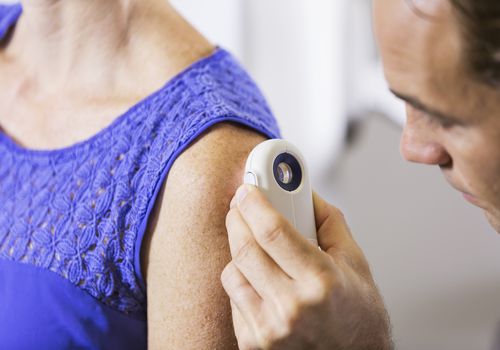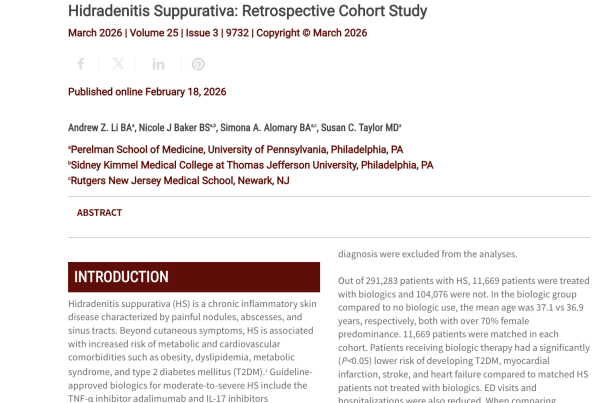National Skin Cancer Month

Enrollment in a supportive oncodermatology program is associated with a significantly improved quality of life score, according to a recent survey from the George Washington University (GW) Cancer Center. The results of the survey were published in the May issue of the Journal of Drugs in Dermatology.
"Supportive Oncodermatology Interventions Improve Patient Quality of Life"
Enrollment in a supportive oncodermatology program is associated with a significantly improved quality of life score, according to a recent survey from the George Washington University (GW) Cancer Center. The results of the survey were published in the May issue of the Journal of Drugs in Dermatology.
Improved Quality of Life
Supportive oncodermatology is a growing field that provides treatment and preventive care to oncology patients who experience adverse dermatologic events associated with their cancer treatments. While dermatologic health in cancer patients is gaining attention, the literature evaluating the impact of supportive oncodermatology clinics on patient quality of life is limited.
To identify the impact of these programs, the group at GW performed a cross-sectional survey of adult cancer patients enrolled at the Supportive Oncodermatology Clinic at GW Cancer Center. Those who met inclusion criteria were invited to complete an online survey with questions adapted from the Dermatology Life Quality Index and Patient Satisfaction Questionnaire.
“Our results show that patient quality of life benefited significantly from enrollment in the clinic’s programs,” said Adam Friedman, MD, director of the GW Supportive Oncodermatology Clinic, interim chair of the Department of Dermatology at the GW School of Medicine and Health Sciences, and senior author on the study. “The supportive oncodermatology field is a critical element of multidisciplinary cancer care that addresses dermatologic wellness in cancer patients.”
The respondents reported satisfaction with the care they received at the GW Supportive Oncodermatology Clinic, especially in terms of providers’ interpersonal manner and communication and would recommend this type of care to other cancer patients.
Prior to receiving care at the clinic, patients had an average quality of life score of 6.5, indicating a “moderate effect” dermatologic adverse events have on quality of life. On average, scores were significantly reduced by 2.7 points after joining the clinic.
While patients reported overall satisfaction with dermatologic care, many reported being unsure if those interventions aided in adherence to anticancer treatment. Because of this, the authors pointed out, it is necessary to develop evidence-based management systems for dermatologic adverse effects.
The article, titled “The Influence of Supportive Oncodermatology Interventions on Patient Quality of Life: A Cross-Sectional Survey,” is published in the Journal of Drugs in Dermatology and is available at jddonline.com/articles/dermatology/S1545961620P0477X.
You May Also Like









